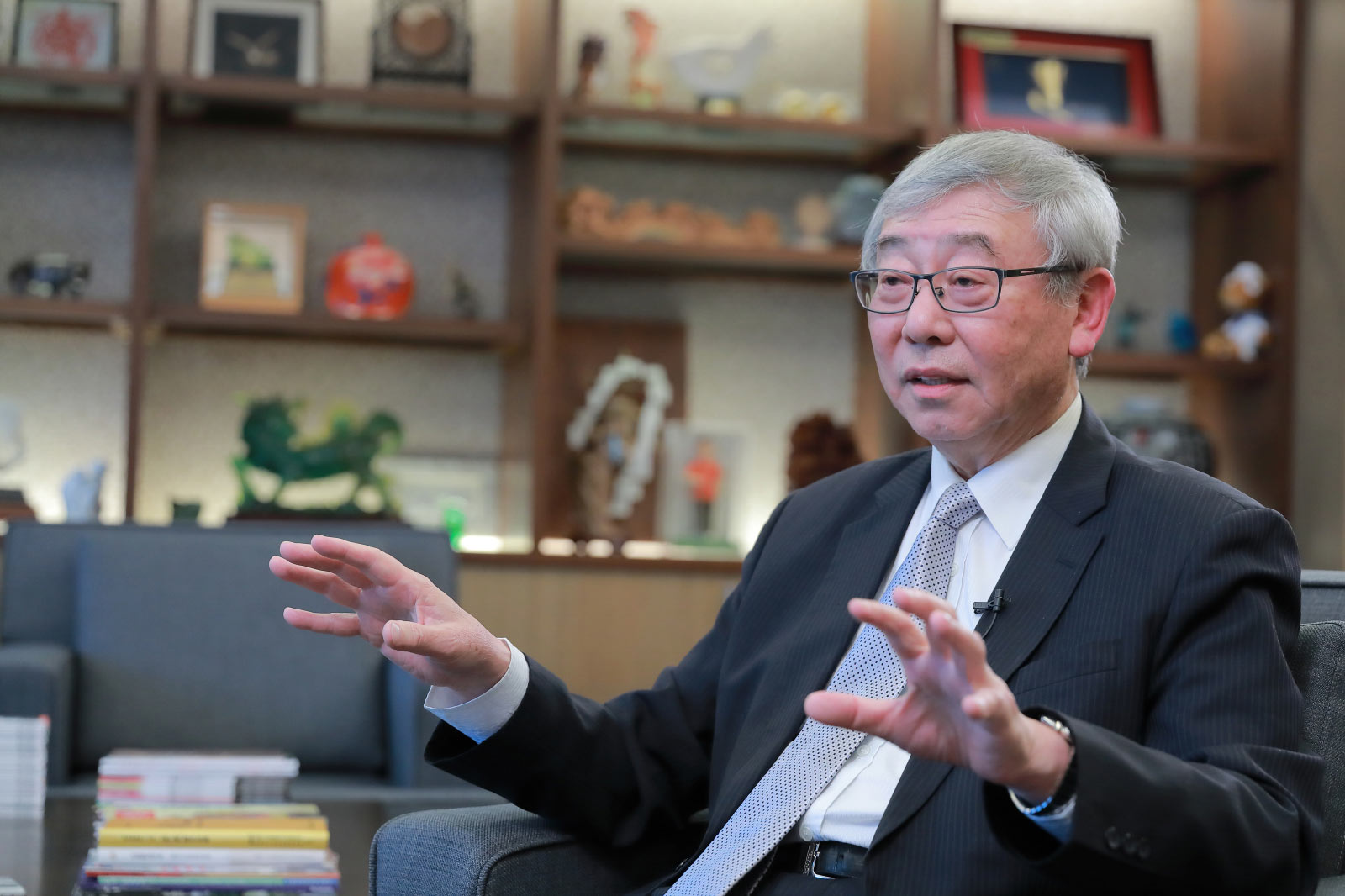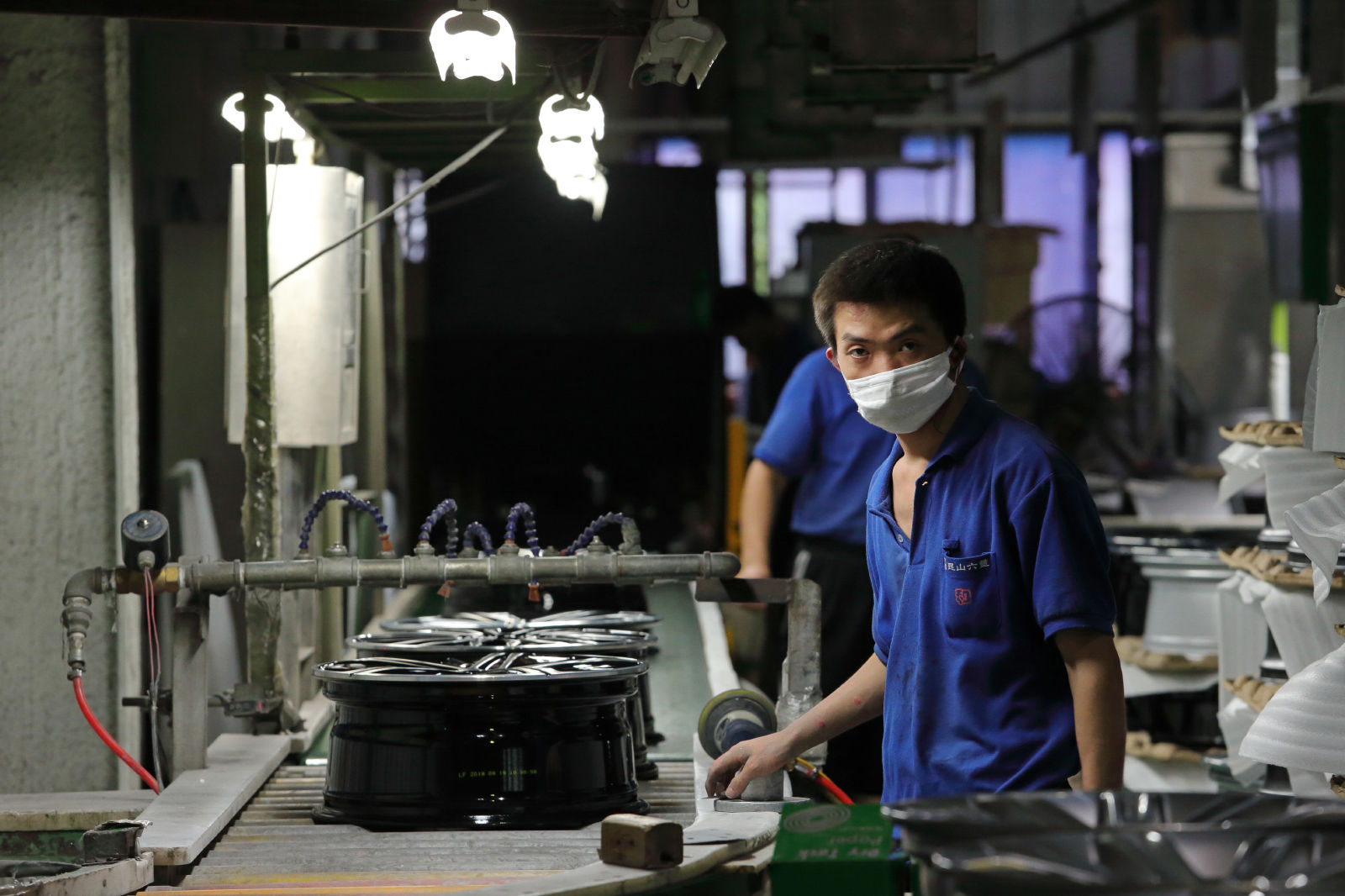Supply chain disruptors worse than viruses: CNFI chairman

Source:Chien-Ying Chiu
The new chairman of Taiwan’s leading industrial association, Matthew F.C. Miau, believes an age of high supply chain costs is inevitable. In this interview with CommonWealth, he explains why and suggests how Taiwanese companies might cope.
Views
Supply chain disruptors worse than viruses: CNFI chairman
By Elaine HuangFrom CommonWealth Magazine (vol. 747 )
Matthew F.C. Miau, the 75-year-old chairman of the Mitac-Synnex Group, got a new job in April, becoming the chairman of Taiwan’s biggest business trade association, the Chinese National Federation of Industries (CNFI).
His Mitac-Synnex Group has five companies listed in Taiwan – Synnex Technology, Getac, Mitac Holdings, UPC Technology and Lien Hwa Industrial – and last year its U.S.-listed subsidiary Synnex Corporation invested US$7.2 billion to merge with Tech Data to create the world’s biggest information technology distribution company.
With all that going on, why would he agree to accept the hot potato the CNFI job represents?
“To take on the responsibility. There’s no other reason,” Miau said in an exclusive interview with CommonWealth magazine.
In his speech when he took over the position, Miau said bluntly that the trade war had turned into friction between the world’s two biggest economies, the U.S. and China, and that friction, combined with the COVID-19 pandemic and the war in Ukraine, had left global supply chains more fragile.
Inflation has also brought higher commodity prices and high-cost supply chains, creating huge challenges for enterprises, he said.
How should Taiwan deal with this changing supply chain environment? Miau answered that and other questions in the interview with CommonWealth, excerpts of which are presented below.
CommonWealth: What do you think the impact will be of the recent rounds of lockdowns in Shanghai?
Matthew Miau: These lockdowns have been very serious. There has been a lot of outside debate about China’s zero-Covid policy. The electronics industry’s supply chain is inevitably breaking down, and costs are going up. Truck drivers have been stuck on the road for days, and people have complained a lot and acted defiantly. I hope these are only short-term issues.
CW: If the zero-COVID policy continues, how deep will its impact be?
Miau: It will have an even greater impact. Inventory management will be critical. If manufacturers are short of materials during the next six months, they may have to pay many times their normal price to buy them.
CW: Could that make inflation worse?
Miau: High-cost supply chains are an international problem. They were foreshadowed by the U.S.-China trade war, and the Ukraine war has had a major global effect on basic commodities, energy, and grains.
Ukraine and Russia account for about 30 percent of the world’s wheat exports and 32 percent of the world’s barley exports, and they provide about 40 percent of Europe’s energy.The sanctions have put huge pressure on costs, causing global imbalances.
But what is the real root cause for the world ending up in this situation? Over the past two years, people have fought with the coronavirus, but even worse, people have been fighting among themselves.
In the fight with the coronavirus, people are on the same side, and the virus will eventually pass. But antagonisms between people, whether over ethnic or religious issues or a trade war, should not be happening, because they involve more than two countries going at it; they draw countries around the world into the confrontations and chaos, destroying the global prosperity seen over the past 30 years.
Globalization and liberal systems are being damaged, including bank transaction systems such as SWIFT, and we’re paying for that with serious inflation, grain and energy crises, material shortages, and environmental problems around the world.
It took a lot of work to build up supply chains, but now they are being damaged. Supply chains for basic necessities, technologies, telecommunications, and services have all been adversely affected.
For example, there was no reason for there to be a semiconductor shortage. China has several 28-nanometer foundries but they can’t buy equipment because Japan and the Netherlands have been barred from selling machines to China. That, of course, has affected the European and American car industries and their supply chains, because they’re out of semiconductors.
So conflicts between people are far more serious than humanity’s battle with the virus.
CW: Structural factors are creating high-cost supply chains. How should Taiwan deal with that?
Miau: Taiwan may be small, but it’s always been a model of global trade. When the road gets bumpy, it makes itself more competitive.
Companies need to go digital and become more computerized and more efficient. When costs are high, it’s even more important to take a look at what you’re doing. The process of digital transformation will take different forms in different industries.
 (Source: Chien-Tong Wang)
(Source: Chien-Tong Wang)
Digital transformation the key to survival
The process of digital transformation can also be a catalyst for environmental initiatives, such as adopting sharing economy concepts. Everyone has used data centers in the past, but now they could rent space on the cloud instead.
Taiwan’s five “shortages” (land, water, electricity, labor and talent) won’t be easy to resolve, but Taiwan’s doors should be opened wide to migrant workers. Taiwan’s working age population is shrinking, and we lost 180,000 people from the working population the year before last.
Taiwan’s New Southbound Policy also needs to be more pragmatic. You shouldn’t want every factory to return to Taiwan. Instead, they should be encouraged to develop overseas, including in Southeast Asia.
I think Taiwan’s current strategy is to maintain peace, promote harmonious regional trade relations, and become competitive globally, especially in Southeast Asia. Instead of treating it as a cost center, it should be turned into a profit center because Southeast Asia will be the world’s biggest market in the future.
A new definition: Made by Taiwan
CW: Does that reflect your idea of an Asia-Pacific Operations Center?
Miau: The so-called Regional Operations Center means ‘Made by Taiwan,’ not ‘Made in Taiwan.’
We should use the supply chains we have built over decades. If, when these supply chains were taking shape, we had manufactured every component in Taiwan, Taiwan would not have become known as the computer kingdom because it could not have produced so much. That’s the Regional Operations Center concept.
It took decades to build the electronics supply chain. It doesn’t make sense now to put it back in Europe or the United States.
Distance and speed are at the heart of logistics planning. Because of that, Taiwan should rethink its regional manufacturing center concept and consider how to create ‘Made by Taiwan,’ how to make good use of Southeast Asia, and how to use Taiwan’s existing status to strengthen its services and financial sectors.
It may be hard for Taiwan’s financial sector to supplant those of Singapore and Hong Kong, but it could use established supply chains, including in Southeast Asia and China, to strengthen our financial system, investment and merger laws, and inland transportation services.
The development of a Regional Operations Center should include sizing up the advantages of regional supply chains in Southeast Asia, balancing the upstream, midstream, and downstream parts of domestic industries, and working on entering into free trade agreements.
CW: Can the antagonism between people be reversed?
Miau: The current antagonism between countries is very serious. The United States is a very strong country and has moved its lines of defense outwards to protect its own security. It has moved east with NATO and extended its defense line to the west to Southeast Asia.
CW: So is the situation between people getting worse?
Miau: It’s not only getting worse, but also provoking further deterioration.
CW: If this situation continues unabated, will high-cost supply chains become long-term phenomena?
Miau: That’s hard to answer. Even though you have free and democratic elections, they may no longer work. I’m relatively pessimistic on this point.
Companies have to use their own scientific methods to protect themselves. Companies should focus on diversification, globalization, and efficiency, and use the power of globalization to mitigate the impact of politics or disputes between people.
There are many things that can only be resolved over time, but attitudes are more important.
The United States and China are different, so Taiwan needs to strengthen its own business competencies and economic competitiveness and simplify its processes and restrictions. It should openly consider making greater use of fintech, big data, and AI applications to improve efficiency.
We encourage mergers, globalization, and liberalization. That will require a lot of regulatory support, which is why companies need to rely more on technology and become more efficient. Only by maintaining the freedom to operate can we succeed over the long term.
Have you read?
- What price has Shanghai paid for China’s zero-COVID policy?
- China under lockdown: The global supply chain crisis
Translated by Luke Sabatier
Uploaded by Penny Chiang






